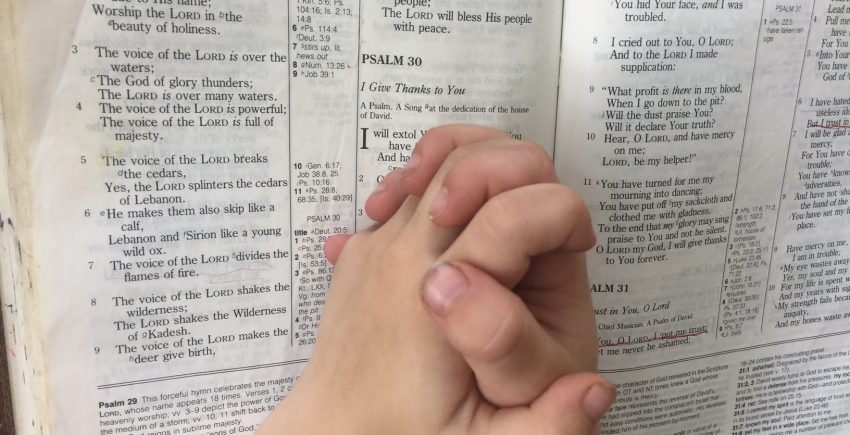
Adult-Only Worship?
Over my years of pastoral work, there are several things I might have done differently, which is to say the American church might reconsider some of the innovations of the last thirty years and buck a few popular but questionable trends.
For example, I now have misgivings about elementary children being segregated from parents during Sunday morning worship in order to have their own worship services. While every church needs age-appropriate discipleship, perhaps the worship hour isn’t the best time for it.
Families should worship together. Children best learn to worship by watching their parents and grandparents do it. When a ten-year-old stands beside his dad or mom, opening his Bible when they do, watching them drop their tithes into the offering plate, singing with them, praying with them, taking communion with them, listening to the sermon with them — it’s an irreplaceable experience.
As I was growing up, I heard my pastor preach week after week, year after year, which is a major reason I’m in ministry today. I recall watching my dad and mom in the choir. I learned the hymns. I found my way around the Bible. True, I shaded in a lot of o’s in the bulletin and drew pictures and squirmed a bit. But I was listening. Good worship leaders and pastors know how to communicate broadly enough to capture children’s attention, even as Paul included children in his teachings to the Ephesians (see Ephesians 6:1-3).
I speak in a lot of churches, and I almost never see children in the congregations. It’s adult-only worship. Most children are teenagers before they ever hear their pastor preach. This is disturbing. Nehemiah 8:1 says, “He (Ezra) read aloud from daybreak till noon as he faced the square before the Water Gate in the presence of the men, women, and others who could understand.”
Who were these “others who could understand”? The logical interpretation is: Men, women, and—children old enough to understand.
In fact, this interpretation is strengthened two chapters later, in Ezra 10:1: “…a large crowd of Israelites — men, women, and children — gathered around him (Ezra).”
When Moses preached his sermons in Deuteronomy, he said, “Assemble the people–men, women, and children, and the foreigners residing in your towns–so they can listen and learn to fear the Lord” (Deuteronomy 31:12).
The Bible says, “Joshua read all the words of the law–the blessings and the curses–just as it is written in the Book of the Law. There was not a word of all that Moses had commanded that Joshua did not read to the whole assembly of Israel, including the woman and children” (Joshua 8:34-35).
Our Lord’s crowds were also made up of “men, women, and children” (Matthew 15:38), and Jesus seemed to delight in having youngsters among His listeners. Indeed, He was displeased when the disciples tried to shoo them away (Mark 10:13-14).
Were I doing it over, I would make sure our church provided age-appropriate discipleship, but I would encourage elementary children to worship alongside adults in a way corresponding to Nehemiah 8, Matthew 15, Joshua 8, and, for that matter, Deuteronomy 6.
Were I planting a new church today, I would unite the family in worship from the very first Sunday.
Having said that, I want to express deep appreciation to children’s pastors and children’s workers in every church. They have the greatest ministry of all, and they are rightfully passionate about it. I would not harm the unity of a church over this issue; for when we grow adamant and dogmatic over methodology we’re damaging the oneness of the Spirit. We all bring different perspectives to the issues we face.
Still, at the very least, parents should have the option, as they do at our church, to bring their elementary children into the worship center with them. Furthermore, they should be strongly encouraged to do so.
And who knows? Here and there congregational leaders and church planters may begin reversing the trends and reassembling the family during the most crucial hour of the week. I’d love to see our sanctuaries and chapels filled with children once more.